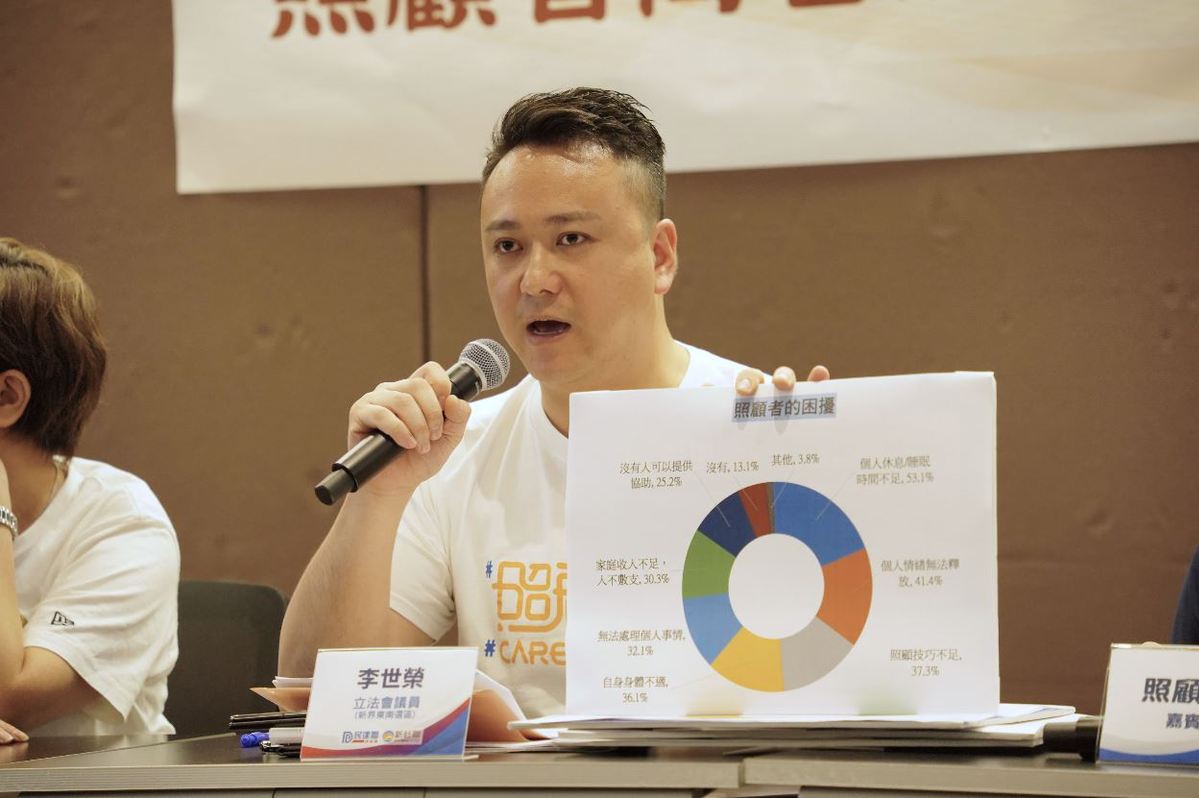Time to care for our carers
Family caregivers perform a challenging and often undervalued role in society. The HKSAR government and various sectors are responding to calls to elevate the caregivers' status and give them the practical and emotional support they need. Gary Chiu reports from Hong Kong.


Unsung heroes
Lawmaker Stanley Li Sai-wing, chairman of the Legislative Council Subcommittee on Promoting Carer-centric Policies, pointed out that carers desperately needed mental health support.
In a written reply to LegCo on May 29, Secretary for Labour and Welfare Chris Sun Yuk-han said the carer hotline had received 16,490 calls as of the end of March, with 38 percent requesting emotional support and 23 percent seeking community support services. Care issues and financial problems accounted for about 14 percent and 7 percent of the calls respectively.
Social workers at the hotline assess callers' needs and provide relevant information, and can make referrals and organize outreach visits if necessary. The Labour and Welfare Department said that hotline operators do not collect personal data such as the ages and addresses of the carers seeking emotional support.
"Over the past two years, the government has focused more on carers, but it is still not sufficient," said lawmaker Li.
Li said that some business representatives had told him they were willing to support carers, but faced difficulties in identifying those in need. Lee proposed introducing a legal definition of carers as "a form of respect for their status".
Li urged the government to take the lead in recognizing carers as "unsung heroes", given that they are key assets of the healthcare system who do much to reduce reliance on public resources.
He highlighted the importance of a carer-oriented assessment tool to offer timely assistance to high-risk cases and prevent tragedies. "Young carers, not to mention the elderly ones, are struggling to cope with the pressures of caregiving," Li said.
Linda Lam Chiu-wa, psychiatrist and professor at the Faculty of Medicine, the Chinese University of Hong Kong, pointed out that some carers were suffering anxiety and depression.
"It is very important for carers to learn to recognize and appreciate their own efforts in looking after their family members," Lam stressed.
She reminded carers not to neglect their own health as they look after others. Carers also need to learn to relax and try to look for the positives in caregiving as a way of relieving pressure, Lam suggested.
- Legal tools essential for AI regulation
- China launches remote-sensing satellite for Algeria
- China reports drop in workplace accidents, fatalities in 2025
- From Kansas to karst: Unpacking Guangxi's charms
- China carries out nearly 8.5m hectares of land greening in 2025
- Chongqing red leaf festival draws record 4.7 million visitors




































